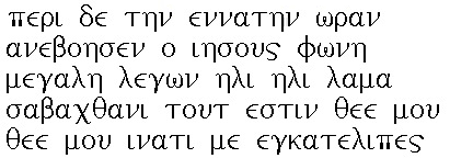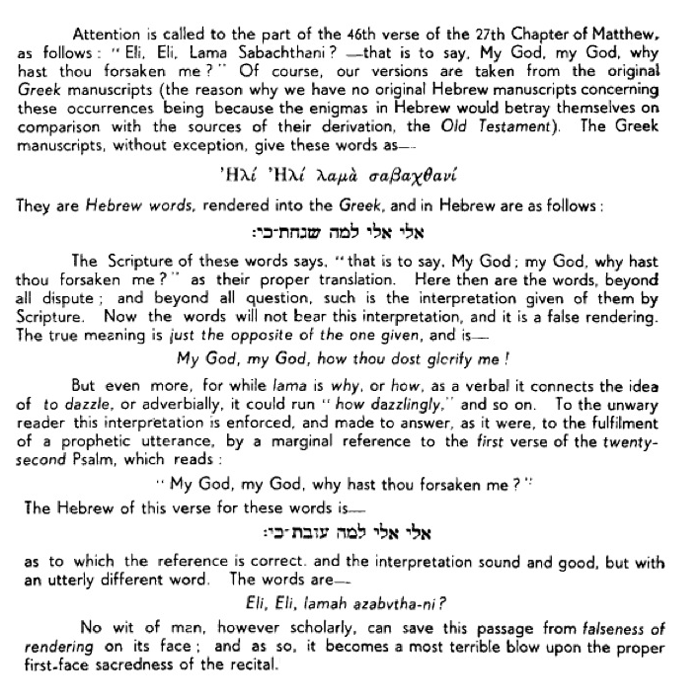|
|
|
click to open/close |
Christ's Passion |
|
I'll here begin by referring to a lecture given by Rudolf Steiner on the first of April 1907 in Berlin, variously titled 'Purifying the blood by removing egoism through the Mystery of Golgotha' (included in Original Impulses for the Science of the Spirit GA96), Steiner quotes John 13:31 'Now the Son of Man is glorified, and God is glorified in him':

Therein, the Greek uses the term 'doxazo' for 'glorify'. Steiner claims that Christ had here said 'Eli, Eli, lama sabachthani': ie, the words Christ uttered when on the cross, usually translated as 'My God, My God, though hast forsaken me' in Mathew 27:46:

A little later in the same lecture, Steiner makes the connection between the two explicit:
'Christ Jesus will once again be able to call out the words he once called out [this time] on the cross: 'Eli, Eli,, lama sabachthani!' that is 'My Lord, my Lord, how you have glorified the I in humanity, making it spiritual.' That is the meaning of these words. There is a later translation which is wrong, taking up the lines from the psalm. But the proper translation of these words is the one you have now heard. Those are the words that express the Mystery of Golgotha: 'My God, my God, how greatly you have glorified me, made me spiritual.'
I had for some time assumed that Steiner obtained this interpretation from Eliphas Levi. Yet, though this latter does refer to Christ's call from the cross in The Key of the Mysteries (in the chapter 'Religious Mysteries', at the end of the section on 'VI - the senary'), he therein does no more than repeat the normal Greek translation as found in Mathew.
The statement and interpretation, instead, comes from another source: in this case, from a quote Blavatksy uses on page 158 of her Secret Doctrine

Blavatsky, to her credit, references this quote as stemming from J. Ralston Skinner's 1875 Key to the Hebrew-Egyptian Mystery in the Source of Measures (pp300-301).
Psalm 22:2 reads as follows, and we can see that, indeed, the transliteration is distinct to the Aramaic words uttered on the cross by Christ:
אֵלִי אֵלִי, לָמָה עֲזַבְתָּנִי
My God, my God, why hast Thou forsaken me
The distinction was of course known and noted from quite early times. The usual explanation is that the words uttered by Christ, in Targum Aramaïc, are distinct to the Hebrew as used in the Tanakh at the time of David's Psalms. What is probably more useful is to check how that Psalm is itself rendered in Targum Aramaïc (My God, my God, why have you left me far from my redemption?), and from thence to make a more definitive judgement.
|